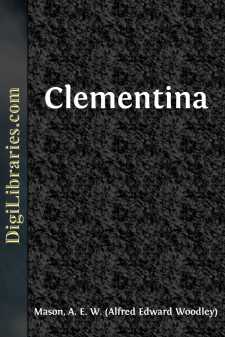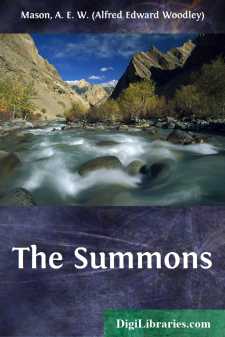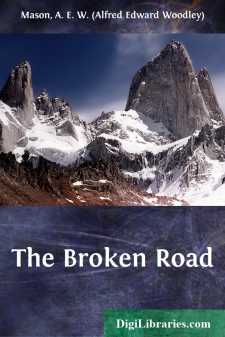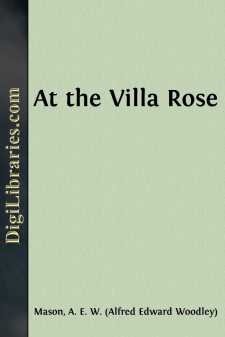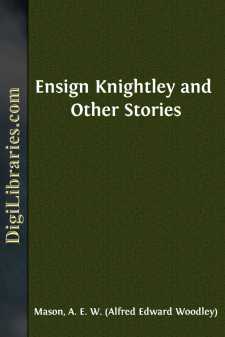Categories
- Antiques & Collectibles 13
- Architecture 36
- Art 48
- Bibles 22
- Biography & Autobiography 815
- Body, Mind & Spirit 144
- Business & Economics 28
- Children's Books 18
- Children's Fiction 14
- Computers 4
- Cooking 94
- Crafts & Hobbies 4
- Drama 346
- Education 58
- Family & Relationships 59
- Fiction 11834
- Games 19
- Gardening 17
- Health & Fitness 34
- History 1378
- House & Home 1
- Humor 147
- Juvenile Fiction 1873
- Juvenile Nonfiction 202
- Language Arts & Disciplines 89
- Law 16
- Literary Collections 686
- Literary Criticism 179
- Mathematics 13
- Medical 41
- Music 40
- Nature 179
- Non-Classifiable 1768
- Performing Arts 7
- Periodicals 1453
- Philosophy 65
- Photography 2
- Poetry 896
- Political Science 203
- Psychology 44
- Reference 154
- Religion 515
- Science 126
- Self-Help 85
- Social Science 83
- Sports & Recreation 34
- Study Aids 3
- Technology & Engineering 59
- Transportation 23
- Travel 463
- True Crime 29
Our website is made possible by displaying online advertisements to our visitors.
Please consider supporting us by disabling your ad blocker.
Clementina
Categories:
Description:
Excerpt
CHAPTER I
The landlord, the lady, and Mr. Charles Wogan were all three, it seemed, in luck's way that September morning of the year 1719. Wogan was not surprised, his luck for the moment was altogether in, so that even when his horse stumbled and went lame at a desolate part of the road from Florence to Bologna, he had no doubt but that somehow fortune would serve him. His horse stepped gingerly on for a few yards, stopped, and looked round at his master. Wogan and his horse were on the best of terms. "Is it so bad as that?" said he, and dismounting he gently felt the strained leg. Then he took the bridle in his hand and walked forward, whistling as he walked.
Yet the place and the hour were most unlikely to give him succour. It was early morning, and he walked across an empty basin of the hills. The sun was not visible, though the upper air was golden and the green peaks of the hills rosy. The basin itself was filled with a broad uncoloured light, and lay naked to it and extraordinarily still. There were as yet no shadows; the road rose and dipped across low [pg 2] ridges of turf, a ribbon of dead and unillumined white; and the grass at any distance from the road had the darkness of peat. He led his horse forward for perhaps a mile, and then turning a corner by a knot of trees came unexpectedly upon a wayside inn. In front of the inn stood a travelling carriage with its team of horses. The backs of the horses smoked, and the candles of the lamps were still burning in the broad daylight. Mr. Wogan quickened his pace. He would beg a seat on the box to the next posting stage. Fortune had served him. As he came near he heard from the interior of the inn a woman's voice, not unmusical so much as shrill with impatience, which perpetually ordered and protested. As he came nearer he heard a man's voice obsequiously answering the protests, and as the sound of his footsteps rang in front of the inn both voices immediately stopped. The door was flung hastily open, and the landlord and the lady ran out onto the road.
"Sir," said the lady in Italian, "I need a postillion."
To Wogan's thinking she needed much more than a postillion. She needed certainly a retinue of servants. He was not quite sure that she did not need a nurse, for she was a creature of an exquisite fragility, with the pouting face of a child, and the childishness was exaggerated by a great muslin bow she wore at her throat. Her pale hair, where it showed beneath her hood, was fine as silk and as glossy; her eyes had the colour of an Italian sky [pg 3] at noon, and her cheeks the delicate tinge of a carnation. The many laces and ribbons, knotted about her dress in a manner most mysterious to Wogan, added to her gossamer appearance; and, in a word, she seemed to him something too flowerlike for the world's rough usage.
"I must have a postillion," she continued.
"Presently, madam," said the landlord, smiling with all a Tuscan peasant's desire to please. "In a minute. In less than a minute."
He looked complacently about him as though at any moment now a crop of postillions might be expected to flower by the roadside....


